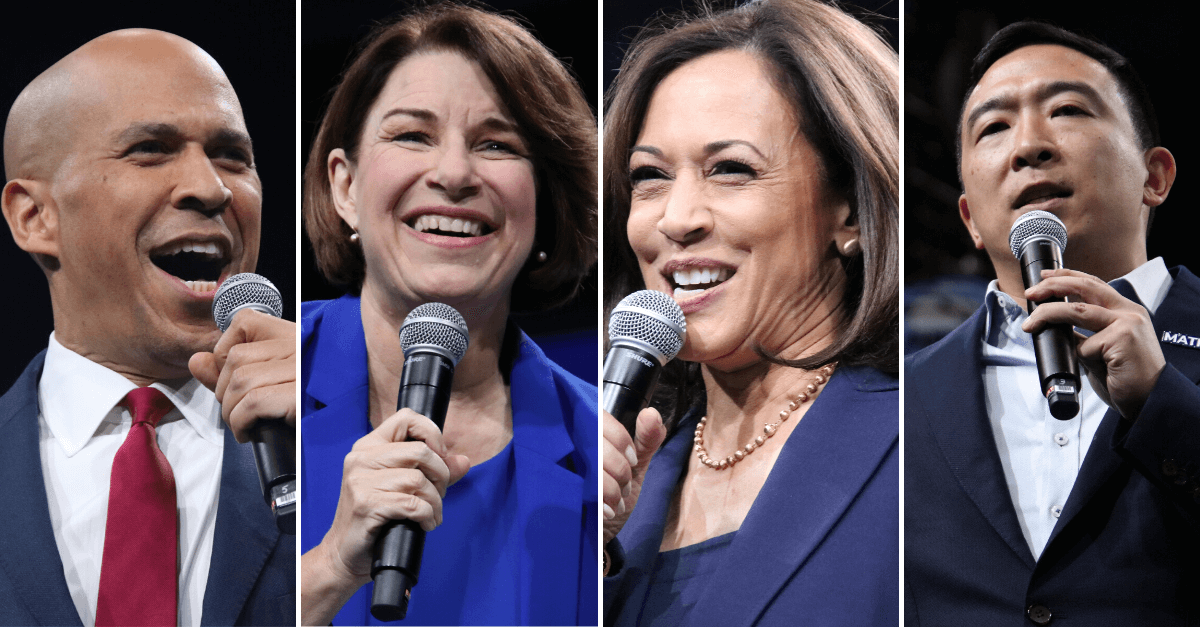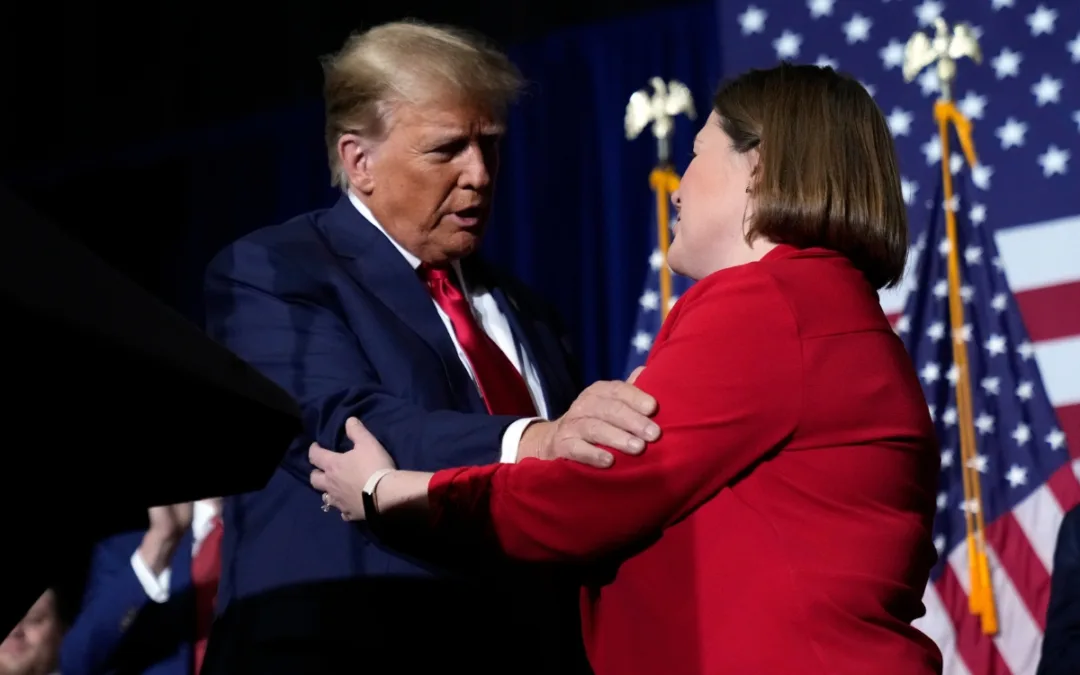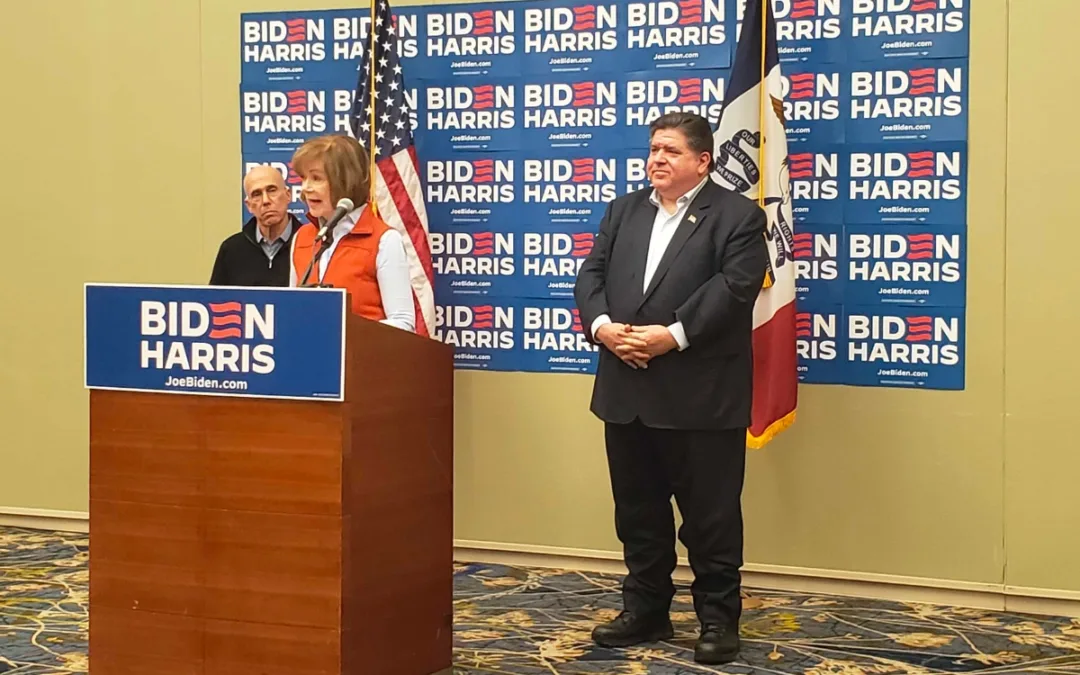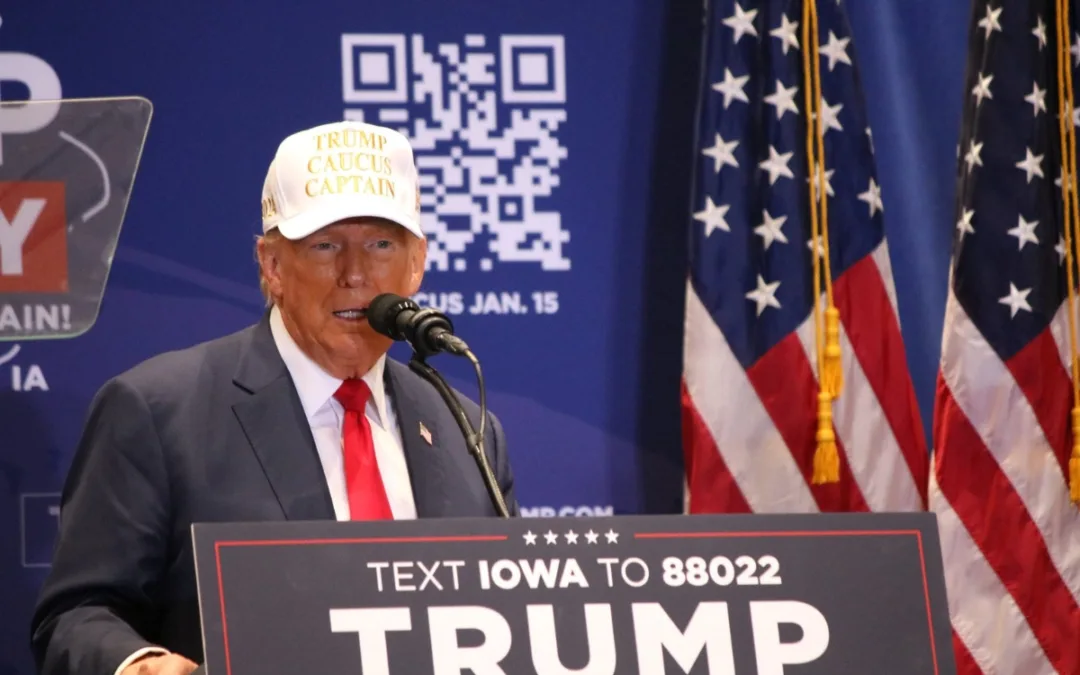
Photos by Julie Fleming
We may only be 82 days away from the Iowa Caucus, but that’s still multiple political lifetimes in today’s media cycles.
For a few months now, the top-four field has largely been set: Joe Biden, Pete Buttigieg, Bernie Sanders and Elizabeth Warren. Lately, Warren and Buttigieg have topped recent polls, but no one is distancing themselves from that pack, and the differences between first and fourth place are relatively slim.
Suffice to say, it’s still anyone’s game.
The other constant, however, has been the gap between those top four and the rest of the field. Rarely has a fifth-place person topped 7% in any poll. Under 10% is a very dangerous place for any candidate to be in Iowa, because you’re at risk of getting wiped out on caucus night by the 15% viability threshold (given regional strengths of different candidates, polling statewide at 10% means you likely are still viable in sections of the state where you’re running strong).
But there’s still reason to believe that someone outside the current top four could yet work their way up into that top tier or at least come in a surprise/better-than-expected fourth (or maybe even third) place.
How could that happen? Two main ways at the moment.
First, Biden has continually slid in the Iowa polls for several months now, while his campaign keeps downplaying expectations for Iowa. He certainly still shows some resiliency and has a loyal core of older voters, but his crowds are often smaller and less enthusiastic than the other candidates in the top four. He stopped running TV ads after falling behind the rest in fundraising.
[inline-ad id=”2″]
Second, Buttigieg may be soaring right now, but he’ll face the full fire of the Democratic field at this next debate as everyone realizes he’s got a great shot of winning Iowa. He’s faced criticism before, but likely not in the manner he’s about to. He may handle it just fine. Or some attack could really land, and Buttigieg’s rise could stall — for Iowa, you want to get hot at the end, and we’re still a ways off from the end.
Both Warren and Sanders feel like they have a secure-enough base and solid organizations in the state that something catastrophic would have to happen to knock them out of the top three on caucus night. Some polls show Sanders in fourth, but I believe his turnout of first-time caucus-goers doesn’t always show up in those surveys.
If either of those Biden or Buttigieg scenarios play out (and that’s still a very big if), someone else could find their way up into the fourth-place slot and turn it into a momentum-booster for the rest of the early states.
Who?
I see four contenders with the best shot of pulling off that surprise: Cory Booker, Kamala Harris, Amy Klobuchar and Andrew Yang.
Some might think a Harris fourth-place finish would still be underwhelming for someone who started this year with such high expectations, but I think at this point it’d make a good comeback story to send her into South Carolina, where she could win.
[inline-ad id=”0″]
Before we go into an analysis of each candidate, let’s quickly review the two most-recent Iowa polls.
Monmouth University (11/7 – 11/11)
Buttigieg: 22%
Biden: 19%
Warren: 18%
Sanders: 13%
Klobuchar: 5%
Harris: 3%
Steyer: 3%
Yang: 3%
Quinnipiac University (10/30 – 11/5)
Warren: 20%
Buttigieg: 19%
Sanders: 17%
Biden: 15%
Klobuchar: 5%
Harris: 4%
Yang: 3%
Gabbard: 3%
Steyer: 3%
Now let’s consider the pros and cons for each candidate’s chances of breaking out, ordered in most likely to do so.
Amy Klobuchar
Why She’ll Rise:
Klobuchar has now polled above Harris in two recent Iowa surveys. She’s spent a huge amount of time in Iowa this year, visiting her 60th county here recently. The last debate gave her a boost, not because of any singular moment or catchy line, but because she simply performed really well and it came across. That debate also got her an influx of donations, so she’s less at risk of running out of money or having to cut staff as some others on this list are.
Her persona and message fit Iowa well, part of why her favorability numbers always look good here. Most importantly, in the Monmouth poll, 9% of all respondents listed Klobuchar as their second choice, just one point behind Biden and three behind Sanders. Klobuchar is very well-positioned to make the most of the precincts where she’s viable, bringing in other, nonviable candidates’ supporters to her corner to boost her final delegate totals.
For a low-polling candidate, Klobuchar continues to rack up notable Iowa endorsements at this late date. She already has plenty of experienced caucus volunteers that can work the room, armed with a good argument that Klobuchar is the candidate who is most likely to carry Iowa in the general election.
Her campaign also made a good show of force at the LJ Dinner. While her contingent of supporters there wasn’t as large as those of Buttigieg, Warren or Harris, it was still a very sizable group of enthusiastic backers.
[inline-ad id=”1″]
Why She Won’t:
How many new caucus-goers can Klobuchar bring out? Her strengths seem best-suited to winning over those who always show up to caucus. If Iowa turnout is as record-breaking as we all think it will be in 2020, she could struggle in relation to the other three potential breakout candidates.
And if we’re also having more conversations about which of the more-moderate candidates has the best chance to win it all, Klobuchar’s prospects post-Iowa seem less fruitful than someone like Booker, who could better translate momentum into a South Carolina victory.
Kamala Harris
Why She’ll Rise:
A Harris comeback story could still be in the making. Of these four candidates, Harris has the largest field operation in Iowa, something they showed off to good effect at the LJ Dinner. Their campaign has done significant women organizing efforts all year, and they recently built out their African American outreach team. Harris should be able to expand the caucus-goer universe to her benefit in a well-organized manner.
She could also be back in the national spotlight in a helpful way with the impeachment process. Harris shined in past nationally-televised events in her role on the Judiciary Committee. If impeachment goes to a Senate trial, it’ll take the senators off the campaign trail, but Harris may be one of the few that still makes that experience a net-positive for her standing in Iowa.
Why She Won’t:
Her big October investment in Iowa didn’t really move the needle, and the entire effort wasn’t what it at first seemed. Most of her visits to Iowa last month were quick in-and-out ordeals, with usually just one or two public events on the schedule per day. Yes, she sprinkled in private gatherings, but to really lock in Iowa support, you need to be doing three to four public forums or rallies a day.
Harris’ approval ratings have cooled off significantly in the past few months. The Monmouth poll had her at a +25 approval now, compared to +55 in August.
Her campaign message has also bounced around a lot, and it seems like a different Harris shows up for every debate. Sometimes that works well and gets her a bounce, but it’s also made it more difficult for caucus-goers to get a clear definition in their head of what Harris’ candidacy is all about. You can also basically set your clock to the Harris campaign’s monthly reset, which drives unhelpful national process headlines for a day or two.
Cory Booker
Why He’ll Rise:
Well, for one, “We Will Rise” is literally printed on his campaign posters! OK, anyway. Real reasons.
In Ames this weekend, Booker turned out over 200 caucus-goers to a packed bar. That’s you’re-still-in-it kind of crowds, which is where Booker has stayed at for several months now. When he’s in front of Iowans, his performance is one of the most persuasive of the field. That’s earned him an intense, loyal following among the small segment of the caucus-going electorate that has committed to him.
He also has a good pitch for those wanting an alternative to Warren and Sanders: he’s one who would be able to turn an Iowa win or over-performance into a win in South Carolina. Buttigieg or Klobuchar’s ability to win over black voters in later primaries is a very big question mark right now, while you can see a scenario where Booker emerges as a strong opponent to the furthest-left candidates for a longer stretch of the nominating calendar.
And Booker’s Iowa ground game and endorsers are top-notch, meaning he can capitalize on any newfound momentum. Polls here have also consistently shown him with high favorables and a good percentage of Iowans actively considering him.
Why He Won’t:
Booker’s biggest hurdle right now is money and a lack of a big breakout moment, which are obviously intertwined. Everyone praises his ability to command a room in Iowa, he’s just stuck in that position where Iowans like him, they just like a different candidate a little bit better.
He has yet to qualify for the December debate, something both Klobuchar and Harris already have, and Yang is halfway there with polling. Booker has zero of four qualifying polls for December right now. It will be difficult for anyone to stay in reasonable contention if they start missing those national debate stages.
While Booker has had a solid Iowa team from the start this year, most other campaigns have since doubled or tripled their own Iowa team’s size over his. Even if Booker does break out and gets a lot more money, we’re almost past the point where a quick ramp-up in staffing would have a huge impact.
Andrew Yang
Why He’ll Rise:
In a crowd this large, it always helps to do something different. Yang has been able to stand out this year, often topping much better-known senators in polls both in early states and nationwide. He’s done so by tapping into what I call the “outsider voter,” people who are fed up with mainstream politics and want something radically different. There’s a lot more of those potential voters out there than some realize (even after Trump proved it), and Yang could turn out a huge number of first-time caucus-goers to the polls. Those people are also likely difficult to poll, so Yang’s surprise in the early states could be bigger than what people expect.
His other big advantage? Money. Yang ended the third quarter with over $6 million cash on hand and, unlike other candidates, doesn’t have a massive staff overhead that’s restricting his spending. He’s going all-in on the Iowa TV airwaves, placing a $1 million ad buy here. That should continue to push him up in the polls.
Why He Won’t:
Yang has beat expectations better than almost anyone this year, staying on the debate stage with the front-runners despite never running for office before. But what’s the ceiling for him? His $1,000/month Freedom Dividend got people’s attention, but it’s not a widely-backed idea within the party yet. An outsider run like Yang’s can lead to impressive-looking 6%s in various polls, quite good for this crowded field, however, you still need a decent slice of the regular party crowd to get much higher.
The other problem is that his Iowa operation was much slower to develop than the others on this list. Yang has recently ramped up his staffing in Iowa, but other candidates had a much bigger head start on building up relationships and developing a volunteer base.
Yang could bring out a ton of new people on caucus night, but you still need well-trained volunteers in all 1,600+ precincts around the state who know how to organize them. The 15% viability threshold could hurt him a lot if they face problems there. A 7% placing for Yang in New Hampshire would be impressive, but it’s hard to get that number in Iowa based on how the viability rules work.
by Pat Rynard
Posted 11/13/19
Politics

It’s official: Your boss has to give you time off to recover from childbirth or get an abortion
Originally published by The 19th In what could be a groundbreaking shift in American workplaces, most employees across the country will now have...

Trump says he’s pro-worker. His record says otherwise.
During his time on the campaign trail, Donald Trump has sought to refashion his record and image as being a pro-worker candidate—one that wants to...
Local News

No more Kum & Go? New owner Maverik of Utah retiring famous brand
Will Kum & Go have come and gone by next year? One new report claims that's the plan by the store's new owners. The Iowa-based convenience store...

Here’s a recap of the biggest headlines Iowa celebs made In 2023
For these famous Iowans, 2023 was a year of controversy, career highlights, and full-circle moments. Here’s how 2023 went for the following Iowans:...





